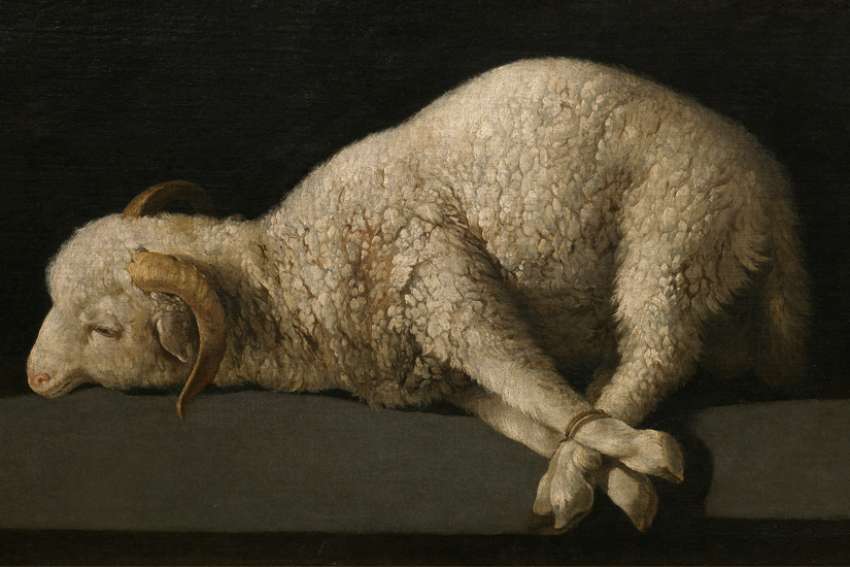It’s funny, we never get any teams called the Lambs. “Let’s hear it for your Toronto Lambs.” You just know how it’s going to turn out when they play the Giants — they are going to be slaughtered.
And yet when John the Baptist introduced Jesus, he called Him the Lamb of God, not the Lion of Juda, not the King of Kings, but the Lamb of God.
There seems to be a message in this that our approach to ministry is one of gentleness and patience as we support and walk with others who are often too tender to be touched, not only in their body, but also in their spirit. It’s a walk which takes twists and turns and the unspoken question of the other is, “Do you love me enough to stay with me even when I mess up?”
It is our answer of faithfulness that helps people realize, perhaps for the first time in their lives, that they are a child of God, they are noble.
I heard of a girl who left home when she was 15 and took to the streets to be caught up in a life of prostitution. One day she met a group of Christians and one of them said to her, “You know, in your heart you are a noble person. You belong to God and so you are noble deep in your core.”
“Well, this is a new one,” she said. “If you had said that I was a sinner it would have been easy for me to accept. The whole village knows that I am a sinner, but I can’t accept that I am somehow noble.”
She walked back to her life of prostitution and it was 12 years until she finally returned to the group. She said she had been haunted by the idea that she was noble. Each time she had gone to do anything she kept asking herself, “Is this a noble thing to do?”
She came back to understand more of what it means to be a noble child of God.
Fifteen years ago I met one such person who over the years has tried my patience and my commitment to fidelity, and there have been many moments when it would have been much easier to just walk away when she lapsed again and again into addiction. And yet, there was a spark of nobility in her that even she recognized through her Aboriginal culture and spirituality, and this kept her searching for the difficult path to sobriety.
Working her way through the shelter system, she moved from emergency shelter, to temporary housing, and finally to permanent housing and sobriety. Along the way she would take whatever work she could find to support herself and ultimately held the position of executive director within a social services organization.
It had been a long tortuous path, but when she moved into a nice downtown condo a few years ago it seemed that finally her long struggle had been worth it. However, the lure of the street is a difficult one to fend off, particularly when those who use drugs as bait are constantly fishing to reel you back in.
It became clear that she was using again and not only that, but many years of drug use had taken its toll. She found herself not only back into her addiction, but into hospital to be treated for some of the damage that her previous drug use had inflicted on her body.
Upon release from hospital recently, I took her to the emergency shelter where I had first met her so she could once again start the long walk back from homelessness to recovery. It seemed, as Yogi Berra would say, “Like déjà vu all over again,” but fate had one more surprise in store when last week I received one of her frequent text messages: “I am back in hospital. I have tested positive for the coronavirus,” … and the journey continues.
As Bishop Ken Untener said in what has come to be known as The Romero Prayer, “We cannot do everything and there is a sense of liberation in realizing that. This enables us to do something and to do it very well. We are workers, not master builders; ministers, not messiahs.”
(Kinghorn is a deacon of the Archdiocese of Toronto.)


